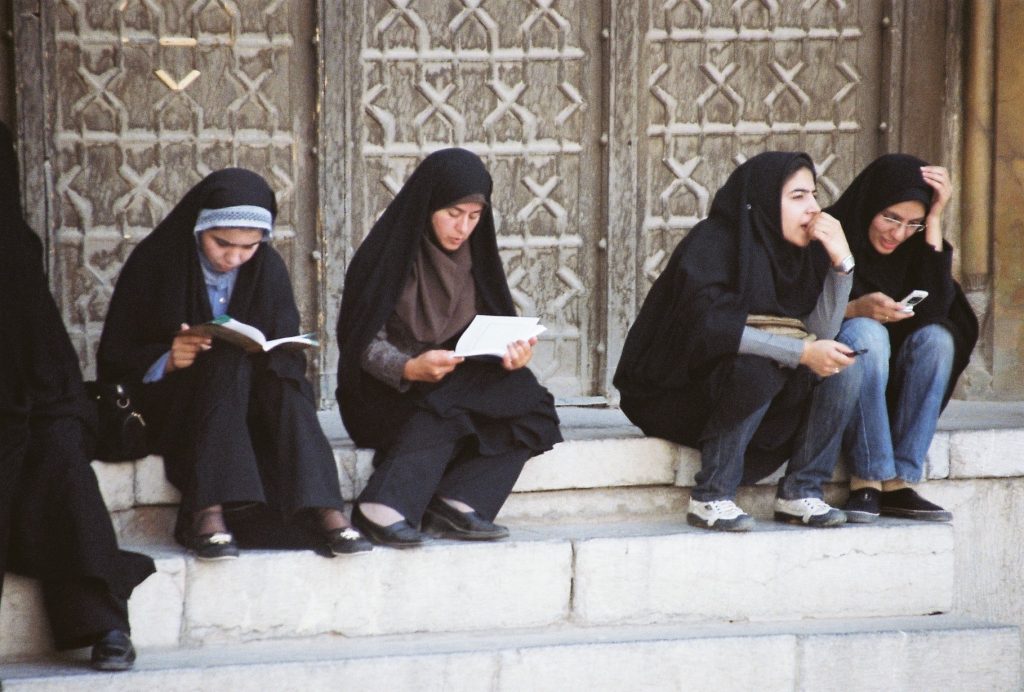Charle’s Cantalupo’s poem, “After My Honeymoon,” is from our Fall 2020 issue. You can read it here.
The poem, “After My Honeymoon”(1), derives from a book that collects forty-three documented, prose accounts of war atrocities during the thirty-year Ethiopian/Eritrean war, 1961-1991. “After My Honeymoon” is one of them. The Tigrinya title of the book, Gfi Gezati Ethiopa ab Ertra, (2) literally translates as “Atrocities by Ethiopian Rulers in Eritrea.”
In suggesting the poem’s “complex textual history,” the note appended to the poem itself could be considerably expanded to address Gfi Gezati Ethiopa ab Ertra in its entirety. The book is a largely ad hoc product of multiple narrators, testimonies, authors, transcribers, languages, translations, translators, and editors working for the most part separately from each other and over decades.
The content of Gfi Gezati Ethiopa ab Ertra is more immediately definitive and discernible. The stories recount the all but limitless human beings’ capacity to terrorize, torture, and slaughter other human beings. The contrast between human savagery and human innocence is glaring, including unprovoked, unjustifiable, sometimes random and sometimes planned, massacres of people (including children, the sick, the elderly, pregnant women, the disabled, and whole families); destruction of houses, property, livestock, entire villages, historical heritage, and the desecration of corpses; violent separation of families, rape, physical and psychological terrorism, the weaponization of sexual abuse; and more, which remains unspeakable.
Before I first read Gfi Gezati Ethiopa ab Ertra, I had been going to Eritrea regularly for over twenty years. I worked on many projects with Eritreans, had many friends, and I visited many of the places that these stories mention: from Asmara to Agordat, Nefasit to Nakfa, Adi Keyh to Keren, Mendefera to Massawa, and many a village along the way. I wrote many articles and several books about Eritrea, and I translated many of its poets. In addition, I read many books about Eritrea and the Eritrean revolution: its dire armed and revolutionary struggle for independence against all odds; its triumph and subsequent years of hopeful development; its falling prey to a renewed war with Ethiopia and then seemingly equal to struggle with itself. But being in Eritrea, what I saw most was the people going about the dailiness of life and largely at peace in a land of stark yet fluid beauty. Remnants of war, disabled veterans, martyrs’ cemeteries – I always saw that, too. I thought I knew the historical record of atrocities of war throughout history and the many testimonials by witnesses.
All the travel, the conversations, the poems, the stories, the essays, the books—none of it prepared me for Gfi Gezati Ethiopa ab Ertra. It made me nauseous, angry, and depressed. Asked if I would like to work on its translation into English with two native Eritrean-language, Tigrinya speakers, I didn’t think so and respectfully declined. The material was too violent and consuming. It left me feeling unsteady and unable to go on with my daily routine.
Furthermore, I felt ashamed and impertinent, even to consider how these stories made me feel compared to what the people in the stories actually suffered first-hand. How could I work on them for the extended time that a book would require when merely reading them for a few hours left me feeling so awful? I had neither imagined nor could have imagined the horrors that people in Eritrea went through. Yet going back to the stories and trying to reread them, after the first time when I barely could, I wouldn’t have to imagine. I would know as I never did before, and as I had to know, if I really wanted to know Eritrea. The point is that I didn’t know – after all my years in Eritrea and reading and writing about it until I read Gfi Gezati Ethiopa ab Ertra.
Although after further consideration, I accepted the invitation to be a co-translator of the work, when we finished, I was unable to leave it. I decided to take the stories one step further by rewriting them as poems. I remembered reading Charles Reznikoff’s Holocaust (1975) over forty years before, and it might be considered a precedent. Only I’m calling my translation of the prose versions of the forty-three stories in Gfi Gezati Ethiopa ab Ertra into poetry Eritread to signal a different precedent: epic (3).
As epic, Eritread is not a personal quest – as in the Odyssey, La Commedia, The Prelude, and The Cantos – but epic more in line with poems like Gilgamesh, Exodus, the Iliad, the Mahabharata, the Aeneid, Beowulf, Sundiata, and more, including their nationalistic, if not chauvinistic aspirations. Eritread, however, would also find a precedent in Christopher Logue’s War Music. Neither work is an extended narrative of military valor, supernatural events, and traditional heroes. The heroes in Eritread heroes are almost always not the makers but the victims of war – and Rushet Woldedris in “After My Honeymoon” is one example of many. Yet they are nothing less than heroic in what they suffer. It’s all too stark, unflinching, unrelenting, and human, and the accumulation of story after story approaches its own kind of epic dimension. I hear it echoing over the din of the millennia-long history of epics, failed epics, forgotten epics, mock epics, and modern and contemporary conditions that make any contemporary epic along traditional lines undesirable and impossible.
Yet there are two ways that Eritread does resemble traditional martial and/or national epics. First, it sets forth a kind of code or covenant for the founding of the nation and its survival; if not that of military heroes and leaders, then of the masses, their suffering, and their voices becoming a covenant at the heart of the Eritrean epic struggle for survival, freedom, and independence. Second, the language of Eritread is formal or highly stylized and an adaptation of traditional dactylic heroic hexameter.
Among several reasons I have for wanting to extend the English translation of Gfi Gezati Ethiopa ab Ertra into English from prose into poetry, one relates to an understanding of poetry itself. As Thomas Hardy observed, it can be thought of as “emotion put into measure” (4). On first reading Gfi Gezati Ethiopa ab Ertra, I’ve already stated that I was overcome with emotion – yet more than I ever was by reading anything before. This emotion wasn’t, at least at first, a response to the text’s offering some kind of beauty, sublimity, insight, or recognition – something of literary power. On the contrary, I felt overcome by a sense of horror, revulsion, inadequacy, and more. Reading Gfi Gezati Ethiopa ab Ertra the first time, my emotions lost all sense of measure. As I kept reading, I regained some balance, yet I had to start working on the prose translation.
Nevertheless, it meant that I lost that first emotion, however much I felt overcome, which struck so spontaneously and felt right in response to such atrocities of war. How could I not be overcome? How could anyone not be overcome? To be overcome by such emotion yet to go forward with a translation created a conflict. I wanted both, but to translate, I had to get beyond the emotion, which I did, completing the forty-three stories in prose. Not that I forgot being first overcome with emotion. It was so extreme, yet I wanted to express it; again, I wanted to go further than translating the stories into standard English prose. Furthermore, I had an extreme measure, specifically a poetic measure, for line after line to express it: the fifteen-syllable line I would even call minor heroic.
Another reason for my trying to transform the English prose translation of Gfi Gezati Ethiopa ab Ertra into poetry was that, when I first had the idea, I felt as if I could be profaning a sacred record of the suffering and deaths of the Eritrean victims of war atrocities in the country’s armed struggle for independence. I was verging on something forbidden, yet which became a challenge, too. My sense of guilt also derived from the ethical question of appropriating the stories to create some kind of literary pleasure. Even if I could put such emotions and more “into measure,” was it desirable? But poetry could also do more. However incongruous the introduction of Thomas Hardy into my decision about translating stories of war atrocities from the Horn of Africa into poetry, similarly incongruous, might be my also being guided in this decision by T. S. Eliot. Ironically, perhaps, two old warhorses of English poetry seemed to explain why I could write poems based on some of the most atrocious stories of the Eritrean revolution. Eliot wrote, “We must claim – and I do claim – that verse…can be a more adequate means of expression of emotion at its greatest intensity, than prose” (5). Moving from prose to poetry, my translation of Gfi Gezati Ethiopa ab Ertra might create or recreate and come closer to the intensity I felt when I first started reading the stories. By intensity, I mean the clarity, concentration, and directness: all towards conveying more emotion but – and in this differing from my original reading experience – “put into measure” and a kind of music. Eliot also wrote, “[A] poet is no more able – perhaps less able – to write poetry when possessed by violent emotion, than anyone else. But the poet…when…successful…is giving himself, and his audience, that satisfaction.” When I first read the stories of Gfi Gezati Ethiopa ab Ertra, I wasn’t “able” to do anything, much less write poetry. I would never presume to write poetry about what the stories depict, were I a transcriber, much less a survivor. But if stories from Gfi Gezati Ethiopa ab Ertra can be read and understood in their intensity through translation into poetry, the catharsis in knowing that they might not be forgotten, much less be likely to happen again, could provide some satisfaction.
Notes
- The following note appears after the poem itself.
After My Honeymoon” has a complex textual history. An oral history turned into prose, the piece recounts the story of Rushet Woldedris as first told by her to Eritrean educator Habtemariam Mehari and published in Gfi Gezati Ethiopa ab Ertra (Atrocities by Ethiopian Rulers in Eritrea). First compiled in the language of Tigrinya, Woldedris’s story was translated into Amharic and then into English. Charles Cantalupo, Menghis Samuel, and Rediet Taddese contributed to the prose version English translation.
- Solomon Berhe, Henock Tesfaburuk, Yemane Tesfalem. Gfi Gezati Ethiopia ab Ertra (Atrocities by Ethiopian Rulers in Eritrea). Untold Massacres of Eritreans: Making Peace from Memory. English translation by Charles Cantalupo, Rediet Kifle Taddese, and Menghis Samuel (Asmara, Eritrea: Hdri Publishers), forthcoming.
- Cf. Kathryn Crim, Boston Review, January 7 2008. “The poem itself is a skeletal epic. The twelve sections roughly chart the progression of the Nazi extermination, beginning with the deportation of the Jews from Germany. As in biblical scripture, witnesses seem to call out from the multitudes to describe individual murders, acts of torture, and the horrifying sight of the dead. These distinct voices have a rhythmic continuity, a oneness of purpose…. But any similarity to epic poetry or biblical verse ends here. The section titles don’t evoke chronology so much as a monstrous tableau, tugging us into the functioning institutions of genocide…. Instead, Holocaust becomes a kind of anti-epic, a tale that spills off into darkness.”
- Thomas Hardy, quoted by Emily Florence Hardy, The Later Years of Thomas Hardy, 1892-1928 (London: Macmillan, 1930), 8. http://bostonreview.net/kathryn-crim-unfinished-story-holocaust. Accessed 07 September 2020.
- T. S. Eliot, “19/2/54/Capetown” (talk), “The Play’s the Thing,” Times Literary Supplement (13 September, 2019), 18, https://www.the-tls.co.uk/articles/the-plays-the-thing-eliot/. Accessed 01 March 2020.




